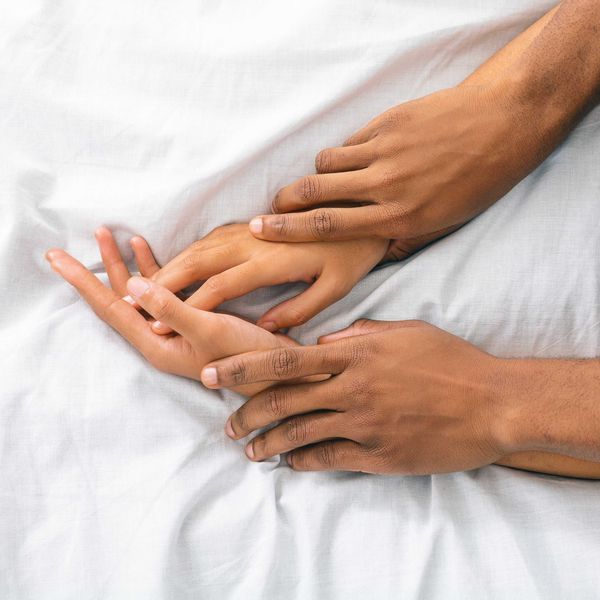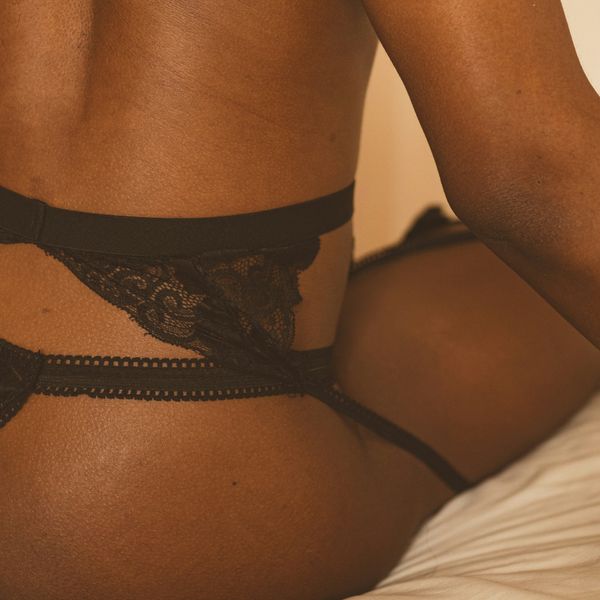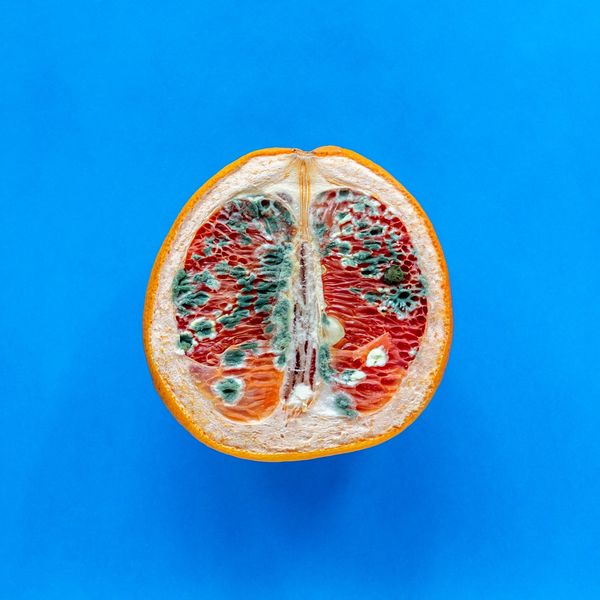
Wanna know why I am so fascinated with the clitoris? It's because I am also very fascinated with sex; especially marital sex (because I am a marriage life coach). And so, every time the topic of a clitoris comes up, it's weird but I get excited! Why? Because plenty of research points to the fact that there's not one purpose or reason why the clit exists other than for a woman's sexual pleasure.
So, you know what that means, right? It means that God intended for women to enjoy sex, just as much as men. Full stop. And, if we're going to explore all of the beauty that is the clitoris, a part of what has to be discussed is something that I bet you give every little thought to—your clitoral hood. Girrrl….girl. That little bit of skin is something that I am hoping you will come to love and cherish with all of your heart after you read the seven reasons why it's a small thing that has a significant purpose.
1. Your Clitoral Hood Is the Foreskin That Protects Your Clitoris
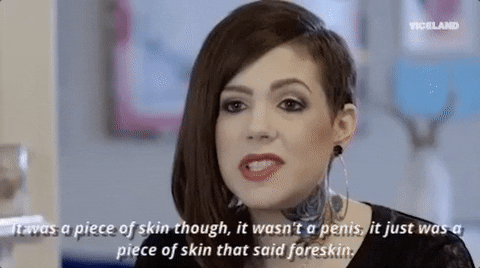
Let's go back to science class for just a moment. Did you know that all sex organs actually develop from the same embryonic cells and that they are also connect each human's nervous system in similar ways?
This is why some people say that every baby starts out with a clitoris, although some eventually end up with a penis. To a certain extent, that would be correct because the clitoris (also known as the aforementioned glans) has a similar function to the penis (which is also known as a glans) on the sexual tip. They both get bigger and harder when they are sexually aroused. They both return to their "normal" size after an orgasm.
And, when a man hasn't been circumcised (by the way, uncircumcised men reportedly have more sexual sensitivity and women who have sex with them reportedly experience more sexual pleasure too), he has something called foreskin; it's a flexible piece of skin that covers the tip of a man's penis and covers up the external opening of his urethra (the tube where his urine and semen comes out).
Yeah, well. While I've never personally been with an uncircumcised man myself, I will say I find it hilarious—and a bit hypocritical—whenever women try to act all grossed out at the thought of being with someone who hasn't been "cut". I mean, how would you feel if a man said the same thing about you because, guess what a clitoral hood is? It's the foreskin that covers up your clitoris (BAM!). And it helps to protect you too. Only, in a bit of a different kind of way.
2. Your Clitoral Hood Keeps Your Clitoris from Annoying You All Day Long

If you want to know some pretty interesting facts about your clitoris, check out "10 Things I Bet You Didn't Know About Your Clitoris". As far as your clitoral hood is specifically concerned, one reason to be especially thankful for it is because, while your clitoris is attached to—count 'em—15,000 nerve endings, the outer part of your clit contains 8,000 nerve fibers alone. Just think about if your clitoris was constantly exposed all day long, rubbing against your panties 'n stuff. Nerves are really sensitive, so while you might think it would be like having a non-stop orgasm (a woman from Atlanta went through that and she wasn't exactly thrilled), actually, it could get to be pretty painful. This is where your clitoral hood comes in. Not only does it protect your clitoris from being over-stimulated and receiving uncomfortable friction, it also protects it from debris and other things that could possibly irritate it.
3. Your Clitoral Hood Helps You to Have a Clitoral Orgasm

The placement of your clitoris plays a huge role in if you are able to experience a vaginal orgasm (an orgasm that comes from penetration) or not. But, thanks to your clitoris, you can definitely have a clitoral orgasm; so long as your clitoris is stimulated to the point of you climaxing, you're all set. And just what is the difference, sensation-wise, between a vaginal and clitoral orgasm? While a vaginal orgasm is usually more intense and can be felt deeper within the body, a clitoral orgasm is more of a surface one that gives you a tingly sensation on the surface of your skin. Something that's pretty cool about clitoral orgasms is they can cause you to have anywhere between 3-16 contractions, plus they can last anywhere from 10-30 seconds.
The reason why your clitoral hood can actually help you to have a clitoral orgasm is, when your clitoris is stimulated, the extra skin that covers it moves up down; that can help to arouse your clitoris quicker and more intensely. How awesome is that?
5. Your Clitoral Hood Is the “Source” of Multiple Orgasms
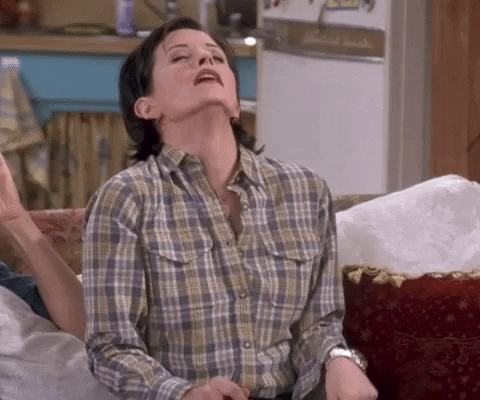
Another thing that is dope about your clitoral hood is it can be the key to experiencing multiple orgasms. How? Because it serves as a bit of a buffer. Remember how I said that the hood is foreskin for your clitoris? Well, a lot of women have trouble having multiple orgasms, simply because the first orgasm was so powerful that their clitoris feels too sensitive to be immediately touched.
But, thanks to your clitoral hood, if, after having your first orgasm, you deep breathe for about 30 seconds and then get on top of your partner for another round, it's very possible that you'll receive just enough stimulation to have another orgasm without your clitoris feeling uncomfortable—due to being over-stimulated—in the process. (Well, what do ya know?)
6. Each Clitoral Hood Is Quite Unique. And Beautiful.
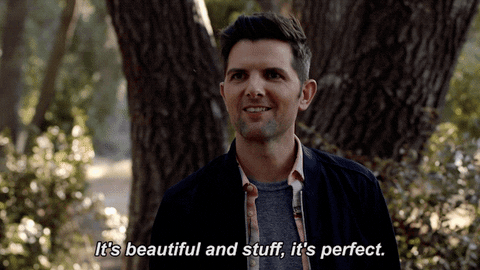
OK, sooo…I'm thinking that you already know how to locate your clitoral hood, right? Just to be on the safe side, if you opened up your legs and looked at your vulva (the outer part of your vagina) in the mirror, the pea-sized "hump" of flesh that is at the top of your "slit" is your clitoris. The skin that covers it is your clitoral hood. And, just like every woman is unique, so is every vulva, clitoris and yes, clitoral hood. And you know what? Every single one is beautiful. I mean, when you stop and think about the fact that your clitoris and clitoral hood ONLY exist to bring you sexual pleasure (well, the hood also exists so that you're not overly-stimulated into a painful experience as well), how can you not find them to be alluring, appealing, delightful, fascinating and magnificent—no matter what shape, size or color they are?
7. All This…and Still, Your Clitoral Hood Is Pretty Low-Maintenance

The fact that a lot of you have probably never even considered your clitoral hood prior to reading this shows just how low-maintenance it actually is. I will say that there are some women who have had pubic hair, lint or even dried-up discharge caught in their clitoral hood that has led to irritation. That's why, as a preventative measure, it can be a good idea to take a Q-Tip, dip it in some olive oil, gently pull your hood back (not all the way, just a little) and swab around your clitoral hood once a month or so in order to dislodge anything that may be up in there. But other than that, there's not much that you need to do in order to keep yours happy and healthy.
Bonus: What Do Some People Like About Clitoral Hood Piercings?

And just how many women have clitoral hood piercings? From what I've read, it's two percent (that's actually kinda high). As far as the scientific/medical side of things, while they claim that vertical clit hood piercings won't do much for you as it relates to increasing your chances of having an orgasm or intensifying your pleasure, what the piercings are able to do is increase your level of sexual desire and quite possibly add to how often you are able to get aroused.
Now that's what the professionals say. I personally know some women who have a vertical clit hood piercing and they all say that it has taken their sexual climaxes to a whole 'nother level, chile. Still, if it's something that you've been considering doing (or you're thinking about doing now), make sure you know exactly what you are getting yourself into. You can check out some videos featuring some sistahs talking about their personal experience here and here. If you want to watch the actual procedure (which is totally NSFW), go here. Piercing or not, when you get home tonight, do a toast to your clitoral hood. I'm not quite sure where any of our sex lives would be without it—and that's real.
Want more stories like this? Sign up for our newsletter here and check out the related reads below:
What Your Vagina Wishes You Would Do More Often
Keep Your Vagina Like A (Literal) Fountain Of Youth
Feature image by Shutterstock
- 15 Things You Didn't Know About Your Vagina - xoNecole: Women's ... ›
- Take Better Care Of Your Vagina With These Tips - xoNecole ... ›
- 10 Things I Bet You Didn't Know About Your Clitoris - xoNecole ... ›
- Three Reasons You Might Want Clitoral Hood Reduction | Dr ... ›
- Can Masturbating Too Much Make My Clit Go Numb? | Allure ›
- What's A Clitoral Hood—And Does It Affect My Orgasms? ›
- Clitoral Erections: Why It Happens, How It Feels, Tips, More ›
- Treatment of the Enlarged Clitoris ›
- How to Touch the Clitoris: Moves, Positions, and Orgasms ›
- Clitoral hood: What it is, appearance, and function ›
This Is How To Keep 'Holiday Season Stress' From Infecting Your Relationship
Hmph. Maybe it’s just me, but it seems like there is something really weird happening in the fall season air (because winter doesn’t officially begin until December 21) that cuddle season is in full swing while break-up season is as well. In fact, did you know that break-ups are so popular during the holiday season that December 11 is deemed Break-Up Day?
The reasons why relationships shift around this time vary; however, I did both roll my eyes and chuckle when I read that a very popular one is because it’s an easy way to get out of getting one’s significant other a Christmas present. SMDH.
Anyway, I personally think that the less shallow folks out here may contemplate calling things “quits” or they at least distance themselves a bit from their partner (and what I’m referring to is serious relationships) due to all of the stress and strain that oftentimes comes with the holidays whether it be financial, familial, due to their tight schedules or something else.
Listen, I would hate for you and your man to miss the fun and happiness of experiencing this time of year, all because you are so overwhelmed or irritated that you can’t really enjoy it. That’s why I have a few practical tips for how to avoid allowing the typical holiday season stress from INFECTING your relationship.
Manage Your Expectations
 Giphy
GiphyUnmanaged expectations. If there is a main reason why the holiday season tends to be so stress-filled for so many people, I’d bet good money that this is the cause. And when you’re in a long-term relationship, expectations can manifest themselves in all sorts of cryptic and/or unexpected ways. You might have relatives who assume that you are going to be with them for Thanksgiving or Christmas when you have other plans in mind. You might be thinking that you are going to spend one amount for presents while your man is thinking something totally different. When it comes to scheduling, your signals may be crossed.
And you know what? To all of these scenarios, this is where clear and consistent communication come in. Don’t assume anything. Don’t dictate anything either. From now until New Year’s, mutually decide to check in once a week, just to make sure that you are both on the same page as it relates to the holidays and what you both are thinking will come along with it. The less blindsided you both feel, the less stressed out you will be. Trust me on this.
Set (and Keep) a Budget
 Giphy
GiphyOkay, so I read that last year, 36 percent of Americans incurred some type of holiday-related debt. Hmph. Last year, there was still some sense of normalcy in this country, chile, so I can only imagine what finances are gonna look like over the next several weeks. That said, since I don’t know a lot of people who don’t find being broke stressful, make sure that you and your bae set a budget and then stick to it this year — no ifs, ands or buts.
Because really, y’all — it doesn’t make sense to deplete savings and/or max out credit cards for a few days of giggles only to be damn near losing your mind because you don’t know how to make ends meet come Dr. Martin Luther King, Jr. Day.
And by the way, this tip doesn’t just speak to things like food and gifts; I also mean travel. If it doesn’t make a ton of sense (or cents) to be all over the place this year — DON’T BE.
Keep Matthew 5:37 at the Forefront
 Giphy
GiphyIf off the top of your head, you don’t know what Matthew 5:37 says, no worries, here ya go: “But let your ‘Yes’ be ‘Yes,’ and your ‘No,’ ‘No.’ For whatever is more than these is from the evil one.” That verse right there? Oh, it’s a boundaries lifesaver! I say that because do you see “maybe” or “I’ll think about it” in there? Nope. LOL. It says that you should tell people “yes” or “no” and leave it at that — and that complements Anne Lamott’s quote, “’No’ is a complete sentence” impeccably well. Yeah, you’ve got to remember that anything beyond a yes or no to a request is privileged information; you don’t owe anyone details or an explanation.
Besides, if you are really honest with yourself, when someone asks you something and you give a “Umm, let me think about it” kind of reply, more times than not, you already know what your answer is going to be — so why not let you both off of the hook? Give your response. Commit to that. And let everyone (including yourself) get on with their lives and schedules.
I promise you that when it comes to those holiday parties, you are pissing more folks off by not RSVP’ing or doing so and not showing up than just saying, “Thank you but not this year” off the rip.
Remember That Your Personal Space Is Privilege Not a Right
 Giphy
GiphyA friend of mine recently bought a new house and invited me over to come see it. He’s a single man with no children, so as I was taking in all of the space that he had, especially as I walked through his finished basement, I joked about relatives coming to live with him. “Hell no” and “absolutely not” were pretty much his immediate responses as he went on to say that some folks even had the nerve to be offended when he told them that he had no intentions on taking DNA in.
Ain’t it wild how people think that your stuff is their right? And yes, that brings me to my next point. Your home is your sanctuary space. If you want to host folks this year — cool. If not, ALSO COOL. Please don’t let folks (family included) guilt you into how they want you to act or even into what they would do if the shoe was on the other foot. You are not them — and as one of my favorite quotes states, “If two people were exactly alike, one of them would be unnecessary.” (A man by the name Larry Dixon said that.)
Hell, my friends? They know that I am good for sending them random things that they need or even want all throughout the year. Coming over to hang out at my pace, though. Uh-uh. Chalk it up to being a card-carrying member of the ambivert club yet I like keeping my living space personal — and I sleep like a baby, each and every night, for feeling that way.
Always remember that your space, your time, your resources, your energy and shoot, yourself period (including your relationship), are all things that are your own. You get to choose how, when and why you want to share them. The holiday season is certainly no exception.
Cultivate Some “You Two Only” Traditions
 Giphy
GiphyIt’s not uncommon for some couples to hit me up after the holiday season to “detox.” Sometimes it’s due to the financial drama (and sometimes trauma) that they experienced. Sometimes it’s because they allowed their relatives (especially in-laws) to get more into their personal business than they should’ve. More than anything, though, it tends to be because they didn’t get enough quality time together and so ended up feeling “disconnected.”
Please don’t let that happen. Listen, I’m not even a holidays kind of woman and yet, I will absolutely sit myself down with some hot chocolate and chocolate chip cookies to enjoy a Hallmark holiday film or two. Aside from the fact that most of them are lighthearted and sweet, I also like that they usually focus on couples loving on each other amidst all of the holiday beauty and ambiance — which is something that all couples should set aside some time to do.
Maybe it’s a vacation. Maybe it’s a staycation. Or maybe it’s my personal favorite, A SEXCATION. Whether it’s for a few days, the weekend or even overnight — don’t you let the holidays go by without setting aside time for you and your man to celebrate one another. Don’t you dare (check out “Are You Ready To Have Some Very Merry 'Christmas Sex'?”).
GET. SOME. REST.
 Giphy
GiphyI once read that 8 out of 10 people get stressed out over the holidays and 3 out of 10 lose sleep during to it — and when you’re stress-filled and sleep-deprived, that can absolutely lead to hypersensitivity, making mountains out of molehills and even not being in the mood for sex.
Your relationship can’t afford to go through any of this, so definitely make sure to prioritize rest. I don’t care how unrealistic it might seem during this time, sleep should never be seen as a luxury; it will always and forever be a great necessity.
That said, try to get no less than six hours of shut-eye in (check out “6 Fascinating Ways Sex And Sleep Definitely Go Hand In Hand”) and even ask your bae to take a nap with you sometimes (check out “Wanna Have Some Next-Level Sex? Take A Nap, Sis.”). Not only will sleep help to restore your mind, body and spirit but, when it’s with your partner, it’s an act of intimacy that can make you both feel super connected, even in the midst of what might feel like chaos.
___
Holiday season stress is real. Still, never give it the permission or power to throw your relationship off. Put you and your man first and let the holidays be what they are gonna be, chile.
Let’s make things inbox official! Sign up for the xoNecole newsletter for love, wellness, career, and exclusive content delivered straight to your inbox.
Featured image by Shutterstock
Sergio Hudson On Designing With Intention And Who Gets Left Out Of The Industry
Sergio Hudson dreamt big as a young South Carolina boy staring out of the window of his mom’s Volvo driving down the Ridgeway, South Carolina streets. Those dreams led him to design opulent tailoring that’s been worn by Beyoncé, Queen Latifah, former Vice President Kamala Harris and Forever First Lady Michelle Obama, just to name a few.
Those dreams have come full circle in a new way as he recently collaborated with Volvo for a mini capsule collection suitable for chic and stylish moments this fall. The 40-year-old designer follows a long legacy of fashion aficionados who’ve used their innovation to push the automotive industry forward, including Virgil Abloh, Eddie Bauer, Paul Smith and Jeremy Scott.
Using the same material from the interior of the Volvo EX90, Hudson crafted a wool-blend car coat and waistbelt that combine the vehicle’s Scandinavian design with his signature tailoring and intention. The exclusive collection launched on October 20, and each piece is made-to-order by Sergio Hudson Collections.

Courtesy
In October, I traveled to Charleston with a group of journalists to get a firsthand look at Hudson and Volvo’s location. During a fitting, Hudson said his goal is to make “great work that can stand the test of time.”
“People can look back on and say, ‘I remember when Sergio did that collaboration with Volvo,’” he continued. “Thinking about aligning yourself with classic brands that speak to where you want to go. And I think that's what this collaboration kind of means to me and my business.”
Hudson pinpoints his mom as the biggest influence for his designs. This collaboration was no different.
“This particular coat reminded me of the swing coats that my mom used to wear in the early 90s. You know, diva girls in the early 90s had Sandra suits,” he said, referring to Jackée Harry’s character in 227. “My mom wore those and she would have these matching swing coats to go over them. And that's where the initial idea came. This would be around the same time that we had our Volvo. So she would put on her suit, her swing coat, get in that red Volvo, and go to church.”

Courtesy
With this capsule and beyond, Hudson wants to see more staples rotating in and out of closets this fall. He advises fashionistas to build her closet out with essentials to mix and match that aren’t just stylish but also sustainable.
“It's just those special pieces,” he said. “You can wear the same shirt and pants every day and nobody will notice. But if you have a special boot, a special coat, a special bill, a special bag, that kind of speaks to everything that your style stands about, that is something you should focus on.”
These are the same kind of staple pieces that return to our Pinterest boards and TikTok feeds season after season. Fast fashion has never been Hudson’s aim. “I'm trying to create a special pieces that can stand the test of time,” he said in his warm, Southern accent. “I'm only creating those kind of pieces from here on out.”

Courtesy
For Hudson, this collaboration is revolutionary. It’s his first time working with a car company and experimenting outside of his wheelhouse in this way.
“This is a Scandinavian brand, and, you know, it's 70 years old. I'm an African-American boy from South Carolina that has had a brand for 10 years. So I think bridging those two worlds and seeing the similarities was the beauty of this project,” he explained.
Though Hudson and his partner and CEO of Sergio Hudson Collections Inga Beckham have made massive strides in just 10 years, Hudson said the industry is far from where he wants to see it when it comes to Black representation. He pointed to how few Black designers were at this year’s Met Gala despite the theme being Black dandyism.
“The fact that I dressed 18 people speaks to how many of us weren't there,” he said. He implored more of industries, fashion and beyond, to collaborate with Black designers often.
“Allow mentorship. Allow funding. Allow great design to shine through,” he implored. “When it comes to being a designer of African descent, when you can't get the funding that your counterparts have, you can't compete. When you get opportunities like doing a collaboration with Volvo, or you get opportunities to be at the Met Gala, that's putting us on the equal playing field, but really the funding behind it is what we need to take it to that desk level.”
Featured image courtesy



